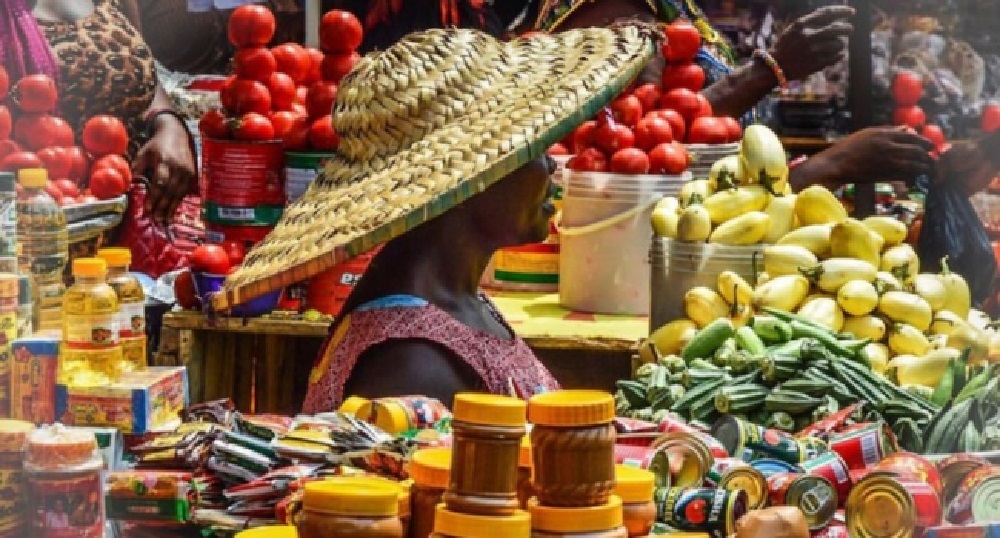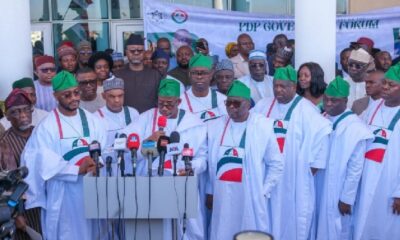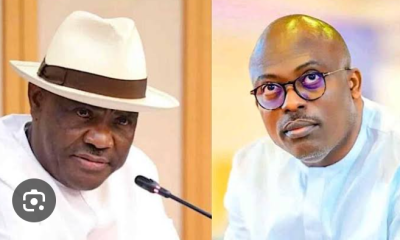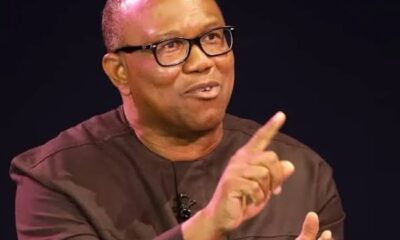Economy
TikTok restores service in US after Trump pledge

TikTok is resuming services to its 170 million users in US after President-elect Donald Trump said he would issue an executive order to give the app a reprieve when he takes office on Monday.
On Saturday evening, the Chinese-owned app stopped working for American users, after a law banning it on national security grounds came into effect.
Trump, who had previously backed a ban of the platform, promised on Sunday to delay implementation of the law and allow more time for a deal to be made. TikTok then said that it was in the process of “restoring service”.
Soon after, the app started working again and a popup message to its millions of users thanked Trump by name. In a statement, the company thanked the incoming president for “providing the necessary clarity and assurance” and said it would work with Trump “on a long-term solution that keeps TikTok in the United States”.
TikTok CEO Shou Chew is expected to attend Trump’s inauguration Monday.
Posting on Truth Social, a social media platform he owns, Trump said on Sunday: “I’m asking companies not to let TikTok stay dark! I will issue an executive order on Monday to extend the period of time before the law’s prohibitions take effect, so that we can make a deal to protect our national security.”
TikTok’s parent company, Bytedance, previously ignored a law requiring it to sell its US operations to avoid a ban. The law was upheld by Supreme Court on Friday and went into effect on Sunday.
It is unclear what legal authority Trump will have to delay the implementation of a law that is already in effect. But it expected that his government will not enforce the ban if he issues an executive order.
It’s an about-face from his previous position. Trump had backed a TikTok ban, but has more recently professed a “warm spot” for the app, touting the billions of views he says his videos attracted on the platform during last year’s presidential campaign.
For its part, President Joe Biden’s administration had already said that it would not enforce the law in its last hours in office and instead allow the process to play out under the incoming Trump administration.
But TikTok had pulled its services anyway on Saturday evening, before the swift restoration of access on Sunday.
The short-form video platform is wildly popular among its many millions of US users. It has also proved a valuable tool for American political campaigns to reach younger voters.
Under the law passed last April, the US version of the app had to be removed from app stores and web-hosting services if its Chinese owner ByteDance did not sell its US operations.
TikTok had argued before the Supreme Court that the law violated free speech protections for its users in the country.
The law was passed with support from both Republicans and Democrats in Congress and was upheld unanimously by Supreme Court justices earlier this week.
The issue exposes a rift on a key national security issues between the president-elect and members of his own party. His pick for Secretary of State, Marco Rubio, had vocally supported the ban.
“TikTok extended the Chinese Communist Party’s power and influence into our own nation, right under our noses,” he said last April. But he seemed to defer to the president-elect when a journalist asked if he supported Trump’s efforts to restore the ban.
“If I’m confirmed as secretary of State, I’ll work for the president,” he told Punchbowl media last week.
After Trump intervened on Sunday morning, Senate Intelligence Committee Chair Tom Cotton, a Republican senator from Arkansas, broke with Trump by saying that any company that helps TikTok stay online would be breaking the law.
“Any company that hosts, distributes, services, or otherwise facilitates communist-controlled TikTok could face hundreds of billions of dollars of ruinous liability under the law, not just from DOJ, but also under securities law, shareholder lawsuits, and state AGs,” he wrote on social media.
An executive order that goes against the law could be fought in court.
Several states have also sued the platform, opening up the possibility to TikTok being banned by local jurisdictions, even if it is available nationally.
Although the platform went live again on Sunday for existing users, the question of whether third-parties – hosting platforms or app stores like Google or Apple – could support TikTok in the US remains murky, says University of Richmond law professor Carl Tobias. The app had been removed from those stores in anticipation of the ban.
“It is murky,” he told the BBC.
In a post on Truth media, Trump promised to shield companies from liability, opening the door to TikTok being available on Apple and Google again.
“The order will also confirm that there will be no liability for any company that helped keep TikTok from going dark before my order,” the president-elect said on Truth Social Sunday.
But during the Supreme Court hearings, Solicitor General Elizabeth Prelogar was adamant that an executive order cannot change the law retroactively.
“Whatever the new president does, doesn’t change that reality for these companies,” Justice Sonia Sotomayor said during the hearings.
“That’s right,” Prelogar said.
Professor Tobias said that the law does include a provision that would allow the president to postpone the ban for up to 90 days, if he can show that the company is making substantial progress on alleviating national security issues. But, he said, it’s not clear whether those conditions have been met.
“The best thing Trump could do is work with Congress, and not potentially be in violation of the law or have any questions left hanging,” he said.
“I don’t know that we’re going to know a whole lot more until we see that executive order.”
Economy
Inflation surged to 24.23% due to escalating cost of living

Inflationary pressure has reappeared as Nigerians grapple with increases in average costs of basic food items and energy.
For the first time after the rebasing of the Consumer Price Index (CPI), headline inflation spiked in March to 24.23 per cent – 105 basis points above the 23.18 per cent recorded in the previous month.
The National Bureau of Statistics (NBS) yesterday indicated that the rate of increase in the average price level was higher in March than the level in February.
In January, the NBS updated the weight and price reference periods in calculation of the CPI to make the inflationary gauge more reflective of changes in consumption patterns and the economy generally.
The rebasing did not only brought the base year closer to the current period from 2009 to 2024, it also introduced some critical methodology changes to improve the computation processes.
After the rebasing, inflation dropped from 34.80 per cent in the pre-rebased period of December 2024 to 24.48 per cent in January 2025. It dropped further to 23.18 per cent in February.
In its latest report, NBS recorded 186 basis points changes between the monthly inflation rate, with the month-on-month rate rising from 2.04 per cent in February to 3.90 per cent in March.
The NBS attributed the spike to the rise in costs of food and alcoholic beverages, fuels and electricity, among other items.
Analysts at CardinalStone said the resurgence was due to renewed foreign exchange (forex) pressures amid heightened global risk-off sentiment.
They pointed at foreign portfolio investments (FPIs) outflows and increased dollar demand, which saw naira dropping by 2.4 per cent in March.
Experts also cited increase in price of Premium Motor Spirit (PMS) or petrol, following the temporary suspension of the naira-for-crude swap arrangement.
Food inflation rate stood at 21.79 per cent in March 2025. The composite food index decreased to 21.79 per cent from 23.51 per cent.
Core inflation, which excludes volatile agricultural produce prices and energy, rose to 24.43 per cent from 23.01 per cent.
Specifically, the month-on-month food inflation rose by 50 basis points from 1.67 per cent in February to 2.18 per cent in March.
The NBS attributed the increase in food inflation to increases in the average prices of basic food items including ginger, garri, broken rice, honey, crabs, potatoes, plantain flour, periwinkle and pepper amongst others.
On a state-by-state basis, food inflation was higher in Oyo with 34.41 per cent; Kaduna (31.14 per cent) and Kebbi (30.85 per cent).
On the other side, the 9.61 per cent recorded by Bayelsa; Adamawa (12.41 per cent) and Akwa Ibom (12.60 per cent), were the lowest inflation rates.
Analysts expressed concerns that the resurgent inflationary pressure might lead to renewed tightening stance by the Central Bank of Nigeria (CBN).
CBN Governor Dr. Olayemi Cardoso, had at the end of the first Monetary Policy Committee (MPC) meeting in 2025, reiterated the apex bank’s commitment to orthodox monetary policies, noting that the apex bank’s stance will be reflective of the inflationary trend.
With inflation rate dropping in February, the MPC had decided to maintain all key monetary policy parameters, including the Monetary Policy Rate (MPR) at 27.50 per cent, the asymmetric corridor around the MPR at +500/-100 basis points, the Cash Reserve Ratio (CRR) at 50.00 per cent for Deposit Money Banks and 16.00 per cent for Merchant Banks, and the Liquidity Ratio at 30.00 per cent.
Clarifying the impact of the rebased CPI, Cardoso had explained that the lower inflation figure should not be misinterpreted.
He underlined the need to analyse more data before drawing comparisons, noting that the CBN is currently assessing the figures and will provide further guidance in due course.
The CBN boss stressed the critical importance of collaboration between monetary and fiscal authorities in sustaining recent economic improvements.
Addressing concerns about the impact of elevated borrowing costs on economic growth, the CBN governor assured that the apex bank’s primary objective is to stabilize the foreign exchange and financial markets.
He expressed confidence that such stability would attract increased foreign investments, stimulating the much-needed economic growth.
Cardoso also highlighted the competitiveness of the Nigerian currency, which has spurred growing interest from international investors.
Economy
SEE Current Black Market Dollar (USD) To Naira (NGN) Exchange Rate

The exchange rate between the US dollar and the Nigerian naira continues to draw significant attention from individuals and businesses alike, especially those involved in international trade and remittances.
On Saturday, April 12, 2025, activity in the Lagos parallel market, commonly known as the black market shows that the buying rate for one US dollar stands at ₦1570, while the selling rate is ₦1575.
These figures are sourced from traders and Bureau De Change (BDC) operators who are active in key currency exchange hubs across Lagos.
Why the Black Market Rate Matters
Although the Central Bank of Nigeria (CBN) does not officially recognize or support the use of the black market for foreign exchange transactions, many Nigerians still rely on it due to difficulties in accessing forex through official banking channels. Issues such as limited availability, long processing times, and strict documentation requirements have made the black market a more accessible, albeit riskier, alternative.
CBN’s Official Position
The CBN continues to warn against participating in parallel market trading, stating that such activities undermine the stability of the national currency. The apex bank urges those in need of foreign currency to apply through authorized financial institutions, which are mandated to follow official exchange rates.
Nonetheless, the disparity between the official and unofficial markets persists, often influenced by market forces such as demand, inflation, and fluctuations in Nigeria’s foreign reserves.
Latest Exchange Rates Overview
Black Market (Parallel Market) Rate
Currency Pair Buying Rate Selling Rate
USD/NGN ₦1570 ₦1575
CBN Official Rate
Currency Pair Highest Rate Lowest Rate
USD/NGN ₦1630 ₦1570
Key Notes for Forex Users
The exchange rates in the black market often differ slightly from one location or dealer to another due to market volatility and negotiation margins.
Rates can also fluctuate within hours based on economic news, government policies, and global financial trends.
It is advisable to compare rates from multiple sources before conducting any large transactions, especially in volatile markets.
What This Means for Nigerians
The current forex rates reflect continued pressure on the naira, and many analysts believe that inflation, reduced oil revenue, and inconsistent monetary policies are key factors driving the demand for the dollar. For everyday Nigerians, this means the cost of imported goods remains high, and businesses dependent on international suppliers face growing challenges.
Until forex supply stabilizes through official channels, the black market will likely remain a major player in Nigeria’s currency landscape.
Economy
CHECK Exchange Rate As Naira Weakens More In Parallel Market

Naira has continued its downward slide in the parallel market on Thursday, exchanging at N1,621/$1, a depreciation from N1,580/$1 recorded just a day earlier on Wednesday.
This represents a N41 decline in 24 hours, deepening concerns among traders and economic watchers about sustained volatility in the FX market.
While the official exchange rate stood at N1,644.00/$1 on Wednesday, according to figures published on the Central Bank of Nigeria (CBN) website, there was no updated official rate published by the CBN several hours after the market close on Thursday.
Meanwhile, market participants at Wuse Zone 4 in Abuja attributed the persistent depreciation to a resurgence in speculative activities, unmet demand from importers, and lingering confidence issues in the foreign exchange market.
Alhaji Aminu Gwadabe, President of the Association of Bureau De Change Operators of Nigeria (ABCON), attributed the ongoing volatility in the forex market to a mix of local and global uncertainties. In a message sent to Nairametrics, he stated:
“The volatility, fears, happenings, and shocks in both the local and international markets called for disdain.
President Trump’s tariff announcements have sent markets into panic, loss of confidence, revenue losses, and budget reviews.”
He added that despite ongoing interventions by the CBN, instability persists.
“As usual, the CBN, being a catalytic actor, must continue to ensure stability through timely interventions. However, volatility remains a challenge and needs to be more comprehensively addressed,” Gwadabe said.
He further called for an expanded policy transmission mechanism to better serve the retail end of the FX market.
“It is therefore necessary for the CBN to reevaluate the efficacy of that Policy transmission mechanisms and expand its scope to the BDCs retail segment of the market to cater for the needs of the critical retail needs of invisible transactions where the BDCs pose the most potent tool of the CBN policy transmission mechanism.”
Dr. Muda Yusuf, CEO of the Centre for the Promotion of Private Enterprise (CPPE), also linked the naira’s recent struggles to global developments and speculative pressures.
“This is not unconnected to recent policy signals from President Trump and global oil price movements. The market is heavily information-driven, and speculative pressure has spiked following the tariff announcements,” Yusuf explained.
“Now that Trump appears to be having second thoughts, we might even see a bit of a breather in the FX market,” he added.
Meanwhile, traders on the ground say the situation is being worsened by the uncertainty surrounding ongoing government reforms and inconsistent access to official FX windows.
“The demand today was unusually high, especially from small businesses that can’t access the banks. It’s putting pressure on our supply,” a trader at Abuja’s Wuse Zone 4, who asked not to be named stated.
The spread between the official exchange rate of N1,644/$1 and the parallel market rate of N1,621/$1 narrowed slightly on Thursday, a sign that some convergence may be taking place, despite persistent volatility.
Market analysts warn that unless the CBN resumes consistent interventions or significantly boosts FX liquidity, the naira may continue to face downward pressure in the weeks ahead
The continued slide of the naira, despite heightened CBN interventions, signals persistent challenges in Nigeria’s FX liquidity and structural demand-supply mismatch.
-

 News20 hours ago
News20 hours agoPDP governors declare support for Tinubu
-

 News23 hours ago
News23 hours agoEx-finance minister rearrested in new fraud probe
-

 News20 hours ago
News20 hours agoHope for Nigerians as Dangote refinery slashes petrol price again
-

 News23 hours ago
News23 hours agoFubara: How can I forgive somebody who never requested for it– Wike
-

 News21 hours ago
News21 hours agoRivers Emergency Rule: Abbas inaugurates 21-member panel
-

 News22 hours ago
News22 hours agoPeter Obi asks president Tinubu to suspend France trip
-

 News20 hours ago
News20 hours agoN1.3trn CBEX Scam: EFCC caution Nigerians against Ponzi Schemes
-

 News7 hours ago
News7 hours agoFG expresses sympathy for CBEX victims, urges a united effort to combat Ponzi schemes

















